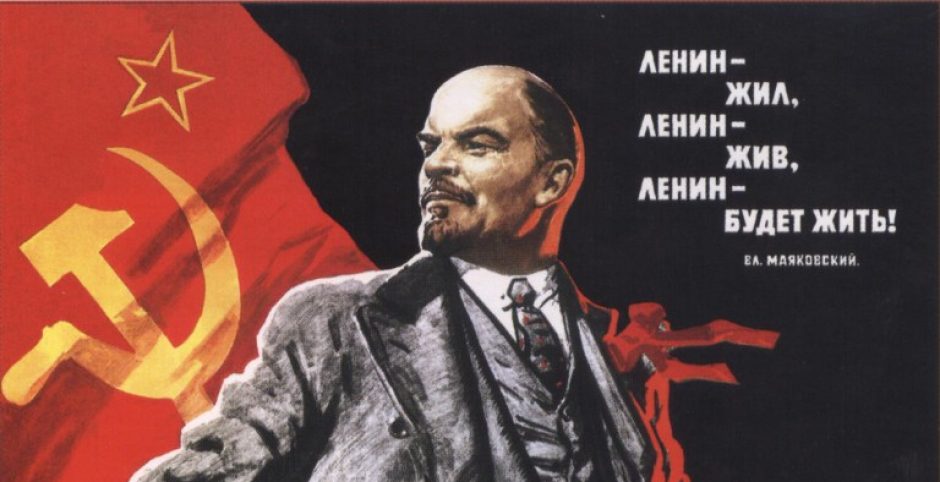Can we draw a connection between susceptibility to a cult of personality leader and national trauma? Freeze emphasizes the characteristics that made Putin so attractive – the antithesis to Yeltsin, he was intelligent, ideologically committed, and deeply proud of his country. Clearly, all of his portrayed personality traits and strengths were carefully constructed in a way that made him particularly appealing to those living in the historic moment of his election. However, I feel that a larger claim can be made: that after a nation suffers particularly painful conditions, such as famine, oppression, economic recession and so on, it becomes easier to mobilize the public to support the individual. The clearest parallel to Putin’s rapid ascent in popularity is Lenin; following decades of political unrest and poverty, Lenin was practically worshipped. Furthermore, he represented hope, in his emphasis on the utopian communist future and orientation towards a collective work ethic. This, to me, seems like a coping mechanism for what was a very challenging time for Russians.
Freeze notes that “When asked what he loved most, Putin instantly replied: ‘Russia'” (Freeze, 494). Putin reinvigorated a national pride that had been deeply lacking under Yeltsin, just as Lenin has restored faith in the collective. Because of the traumatic situations Russia was arising from, and the unifying rhetoric employed, both Lenin and Putin were able to galvanize massive support.

Contrarily, why was Boris Yeltsin unable to build a cult of personality from the national trauma of the USSR’s collapse?
Against the backdrop of Communism’s demise and the ‘booms’ created by neoliberal malefactors Reagan and Thatcher, Yeltsin opted for ‘shock therapy’: liberalization, privatization, deregulation. Jumping from communism into hardcore capitalism was always going to be a success, right!?
Would anyone have failed in the immediate post-Soviet era? Was Yeltsin a particularly incompetent statesman? Was he just drunk all the time?
Putin’s emergence from relative obscurity to presidency through popular vote owes a great amount to the events directly preceding his ascendancy. Yeltsin’s corrupt command devastated Russia economically, and the “fortuitous surge in the global economy” (489), coinciding with Putin’s leadership, allowed for him to assume responsibility for the alleviation of national suffering and catastrophe. The Chechen conflict early in his career as prime minister provided an early situation in which he was able to act expediently. Furthermore, his publication of manifestos and his initial speech to parliament laid out the challenges facing the nation while providing hope in the establishment of certain goals for the nation. This speech thereby proved his competency in light of Yeltsin’s inadequacy and lack of a political program beyond the “his own…ideology of power” (468). His patriotic assertion that Russia, while integrating European influences and participating globally as a “major European nation” (495), should determine its own development projected to the people a view of national pride and dignity that had been previously impossible under Yeltsin.
Putin’s policies and character, in direct opposition with Yeltsin’s presidency still so fresh in traumatized public memory, contributed to this ‘cult of personality.’ Putin offered an alternative to the painful ways of life of the past, in his “‘managed economy’, the antithesis of the neoliberal ‘Washington Consensus,” and furthermore, “in no ways identical with the étatisme of the Stalinist command economy” (496). Putin served as a foil to Yeltsin (politically, physically, temperamentally); this stark contrast helped to establish Putin as an idealized figure, arriving to assist Russia surface from the depths of socioeconomic crisis.
In many of the eras we have looked at, there appears to be — along with a susceptibility to a cult of personality after a national trauma — a dramatic fluctuation between political and cultural extremes. In Russia’s case, this seems to coincide with times of outward-looking Westernization followed by inward-looking Russian pride. Thus, Putin was not only attractive because Russia had just emerged from a traumatic event and he gave people a new hope, but because he represented something completely different to what came before him — namely, a rekindling of Russian pride and nationalism. Conversely, Yeltsin represented a deconstruction of Soviet collectivization in a drive toward “an accelerated transition from a command economy to free markets…with the goal of a rapid transition to a more efficient, competitive economic system based on the Western model” (Freeze, 465). While Yeltsin’s transition was significantly less successful than Putin’s, it still reflected a tendency to completely undo what had been done before, and try something new. Hypothetically, would Putin’s rise to power have been as successful, or even taken the same form if it had followed the collapse of the Soviet Union instead of the failure of Yeltsin’s plans? Were Yeltsin’s ambitions to mirror a Western model doomed to fail because of what they were, or were they just implemented in the completely wrong way?